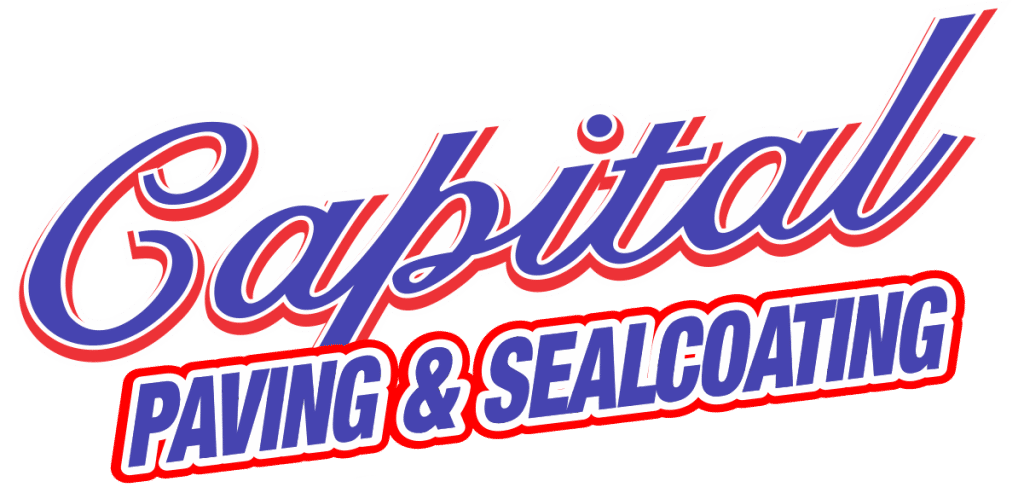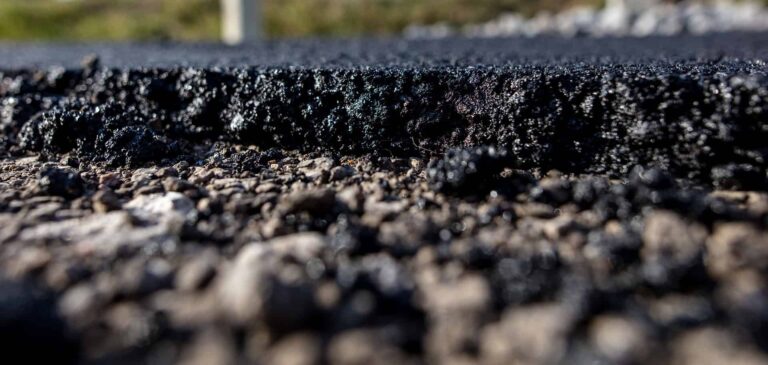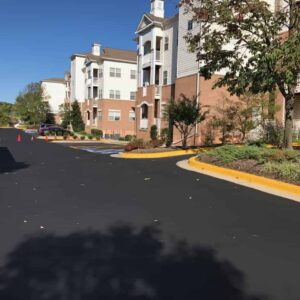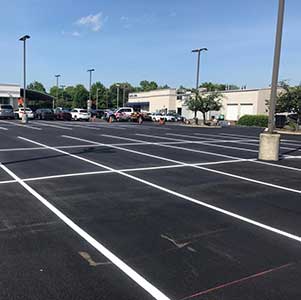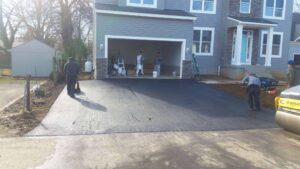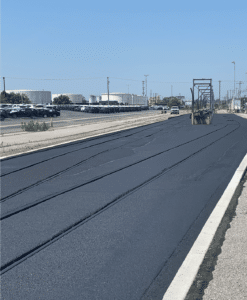You’ve decided that it’s time to repave your driveway or parking lot, so you start looking at your options. Asphalt seems to be the one that most people recommend. After all, it offers a variety of benefits:
- Cost-effective
- Durable
- Versatile
- Eco-friendly
- Low maintenance
However, what most people don’t realize is, there are several different types of asphalt, and they all have their own advantages and disadvantages. In this article, we’re going to explore 9 different types of asphalt.
For more than 20 years, Capital Paving & Sealcoating has been serving Anne Arundel County. We look forward to serving you! We are experts in the world of surface management and paving, so contact us today to get your personal estimate for your paving project.
What is Asphalt?
Asphalt is a sticky black liquid that is bound together with gravel, crushed rock, sand, and slag. In order to create a cohesive mixture, a binder is added. This is the most common material for roadways and pavement. As mentioned, we are going to look at 9 different types of asphalt below:
9 Types of Asphalt Mixes
We are going to explore 9 different types of asphalt mixes:
- Coarse graded asphalt
- Hot mix asphalt
- Cold mix asphalt
- Warm mix asphalt
- MC cold mix
- Porous asphalt
- Top layer asphalt
- Milled asphalt
- UPM
Coarse Graded Asphalt
Coarse graded asphalt is rough and provides support for a smaller mix. Typically, it use used on roadways for surface lifts, parking lots, or driveways. Often, these mixtures are called “base layers” or “binder mixtures”
Advantages
Improves skid resistance, reduces spray, and decreases hydroplaning risk
Disadvantages
Creates high porosity, but doesn’t provide the same durability due to the lack of bonding between fine aggregates
Hot Mix Asphalt
Hot mix asphalt is used to patch or pave roadways, parking lots, driveways, or other paved surfaces. This is the easiest to work with under elevated temperatures. It provides a long-lasting solution for asphalt pavement issues but must be used immediately after purchase. Once it begins to cool, it’s harder to work with. Once completely cooled, it’s like a rock.
Advantages
- Durable
- Can withstand flooding, wind, etc
- Can withstand weather elements
- Flexible, so often used for highways or driveways that experience high traffic
Disadvantages
- A bit more expensive than other asphalt mixes
- Outdoor temp must be between 50° and 90° F
Cold Mix Asphalt
Cold mix asphalt remains soft at colder temperatures and resists water no matter what the temperature. This asphalt mix is often used to fix potholes. The expected lifespan of cold mix asphalt is much shorter because it’s softer. Therefore, it should only be used as a temporary fix or as a last resort.
Advantages
- Affordable
- Can be installed in cold temperature
- Water resistant at any temperature
Disadvantages
- Should only be used as a temporary or last resort such as filling potholes or filling cracks during the winter
Warm Mix Asphalt
The process of making warm mix asphalt is similar to that of hot mix, only 50°F to 100°F lower. The primary advantage of hot mix is that it uses less compacting exertion and therefore releases less CO2. Warm mix does seem to cost more- but it’s the perfect option for those who want a “green” solution.
Advantages
- Lower mixing temperatures saves resources and energy
- Enhances working conditions
- Cures quickly, so pavement can be opened to traffic almost immediately
- Doesn’t cause wear/tear to construction tools
- Inexpensive
Disadvantages
- Difficult to find the right balance
- Easily damaged by moisture
MC Cold Mix Asphalt
MC cold mix asphalt is a temporary asphalt that is used for patching. It cures slowly and is primarily used in areas where a temporary patch is needed. It will hold up best in smaller areas with little to no traffic. This asphalt mix can be stockpiled for later use.
Advantages
- Flashpoint is higher than traditional medium cured asphalt
- Aggregate doesn’t have to be cooled as much when traditional stockpiles are created
Disadvantages
- Slow to cure
- Only suitable for small areas with light traffic
Porous Asphalt
Porous asphalt has tiny holes in it that allow the water to flow through the pavement to the ground underneath. This improves water maintenance of the surface. This type of asphalt is often used in parking lots to allow water to drain away.
Advantages
- Improves stormwater management
- Increases skid resistance
- Requires less energy to produce
- Mitigates odor, smoke, and emissions
Disadvantages
- Not suited for areas with heavy traffic- used primarily for walkways, patios, and driveways
- Not suited for commercial surfaces with heavy traffic
Top Layer Asphalt
Top layer asphalt is the most commonly used mix. It’s laid once at a temperature of 300°F to 350°F. It is the final layer that is visually appealing due to the small stone feature that creates the appearance of a compact surface when smoothed out.
Advantages
- Budget friendly
- Reduces noise pollution
- Visually appealing
- Comfortable ride
Disadvantages
- Typically requires more maintenance
Milled Asphalt
Milled asphalt comes from rejuvenating an asphalt surface. This process involves grinding the top layer into new asphalt. This type of asphalt is often used instead of hot asphalt and stone gravel. It’s more budget-friendly and can withstand harsher weather than other elements can.
Advantages
- Budget-friendly
- Reduces demand on aggregate
- Enables percolation
- Environmentally friendly
Disadvantages
- Quality varies, not as good as new asphalt
- Color not as deep as traditional fresh asphalt
UPM Asphalt
UPM asphalt works in any weather condition. It is a permanent solution to any asphalt pavement problem. It is used to repair wet or dry potholes, so no matter what the weather conditions, repairs can still be carried out on your surfaces. Once compacted, UPM is ready for use. It is designed to fix large issues and it can be used without special equipment.
Advantages
- Easy to use
- Cost-effective
- Works well under all weather conditions
- Can be used no matter what the temperature
Disadvantages
- Only suitable for repairs
- Not suitable for high-traffic areas
If you want to learn more about the various types of asphalt, contact Capital Paving & Sealcoating today. Our expertise and dedication can keep your asphalt surfaces in tip-top shape. We are ready to address all of your asphalt issues, from residential to commercial to industrial. If you are in or near Anne Arundel county in Maryland, please contact us today!
